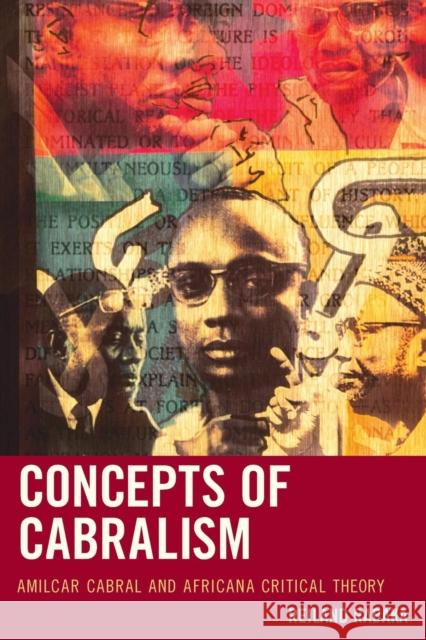Concepts of Cabralism: Amilcar Cabral and Africana Critical Theory » książka
Concepts of Cabralism: Amilcar Cabral and Africana Critical Theory
ISBN-13: 9780739199268 / Angielski / Miękka / 2015 / 386 str.
Concepts of Cabralism: Amilcar Cabral and Africana Critical Theory
ISBN-13: 9780739199268 / Angielski / Miękka / 2015 / 386 str.
(netto: 221,62 VAT: 5%)
Najniższa cena z 30 dni: 231,74
ok. 30 dni roboczych
Dostawa w 2026 r.
Darmowa dostawa!
By examining Amilcar Cabral's theories and praxes, as well as several of the antecedents and major influences on the evolution of his radical politics and critical social theory, Concepts of Cabralism: Amilcar Cabral and Africana Critical Theory simultaneously reintroduces, chronicles, and analyzes several of the core characteristics of the Africana tradition of critical theory. Reiland Rabaka's primary preoccupation is with Cabral's theoretical and political legacies--that is to say, with the ways in which he constructed, deconstructed, and reconstructed theory and the aims, objectives, and concrete outcomes of his theoretical applications and discursive practices. The book begins with the Negritude Movement, and specifically the work of Leopold Senghor, Aime Cesaire, and Jean-Paul Sartre. Next, it shifts the focus to Frantz Fanon's discourse on radical disalienation and revolutionary decolonization. Finally, it offers an extended engagement of Cabral's critical theory and contributions to the Africana tradition of critical theory. Ultimately, Concepts of Cabralism chronicles and critiques, revisits and revises the black radical tradition with an eye toward the ways in which classical black radicalism informs, or should inform, not only contemporary black radicalism, African nationalism, and Pan-Africanism, but also contemporary efforts to create a new anti-racist, anti-sexist, anti-capitalist, anti-colonialist, and anti-imperialist critical theory of contemporary society--what has come to be called "Africana critical theory."











